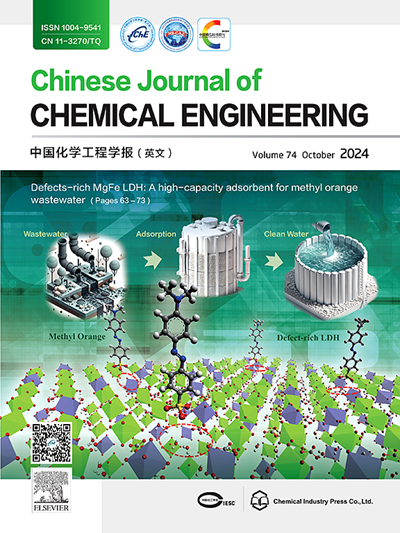数据驱动的溶解度预测模型:NaCl-Na2SO4-H2O体系的案例研究
IF 3.7
3区 工程技术
Q2 ENGINEERING, CHEMICAL
引用次数: 0
摘要
准确预测氯化钠-硫酸钠-水体系的溶解度数据至关重要。为盐湖资源开发和废水处理技术提供理论支持。本研究提出了一种创新的溶解度预测方法。它解决了传统热力学模型的局限性。当来自不同来源的实验数据不一致时,这一点尤为重要。我们的方法将加权局部离群因子技术与深度集成神经网络结构相结合,用于异常检测。该方法在保持数据分布完整性的同时有效地去除局部异常值,并集成多个神经网络子模型来全面捕获系统特征,同时最大限度地减少单个模型的偏差。实验验证表明,在−20°C到150°C的温度范围内,预测性能优异,经过贝叶斯超参数优化后,确定系数达到0.989。这种数据驱动的方法比传统的热力学模型提供了更准确和普遍适用的溶解度预测,为盐湖资源利用、分离工艺优化和环境盐管理系统的工业应用提供了理论指导。本文章由计算机程序翻译,如有差异,请以英文原文为准。
A data-driven predictive model for solubility: A case study of the NaCl-Na2SO4-H2O system
Accurate prediction of solubility data in the Sodium Chloride-Sodium Sulfate-Water system is essential. It provides theoretical support for salt lake resource development and wastewater treatment technologies. This study proposes an innovative solubility prediction approach. It addresses the limitations of traditional thermodynamic models. This is particularly important when experimental data from various sources contain inconsistencies. Our approach combines the Weighted Local Outlier Factor technique for anomaly detection with a Deep Ensemble Neural Network architecture. This methodology effectively removes local outliers while preserving data distribution integrity, and integrates multiple neural network sub-models to comprehensively capture system features while minimizing individual model biases. Experimental validation demonstrates exceptional prediction performance across temperatures from −20 °C to 150 °C, achieving a coefficient of determination of 0.989 after Bayesian hyperparameter optimization. This data-driven approach provides more accurate and universally applicable solubility predictions than conventional thermodynamic models, offering theoretical guidance for industrial applications in salt lake resource utilization, separation process optimization, and environmental salt management systems.
求助全文
通过发布文献求助,成功后即可免费获取论文全文。
去求助
来源期刊

Chinese Journal of Chemical Engineering
工程技术-工程:化工
CiteScore
6.60
自引率
5.30%
发文量
4309
审稿时长
31 days
期刊介绍:
The Chinese Journal of Chemical Engineering (Monthly, started in 1982) is the official journal of the Chemical Industry and Engineering Society of China and published by the Chemical Industry Press Co. Ltd. The aim of the journal is to develop the international exchange of scientific and technical information in the field of chemical engineering. It publishes original research papers that cover the major advancements and achievements in chemical engineering in China as well as some articles from overseas contributors.
The topics of journal include chemical engineering, chemical technology, biochemical engineering, energy and environmental engineering and other relevant fields. Papers are published on the basis of their relevance to theoretical research, practical application or potential uses in the industry as Research Papers, Communications, Reviews and Perspectives. Prominent domestic and overseas chemical experts and scholars have been invited to form an International Advisory Board and the Editorial Committee. It enjoys recognition among Chinese academia and industry as a reliable source of information of what is going on in chemical engineering research, both domestic and abroad.
 求助内容:
求助内容: 应助结果提醒方式:
应助结果提醒方式:


